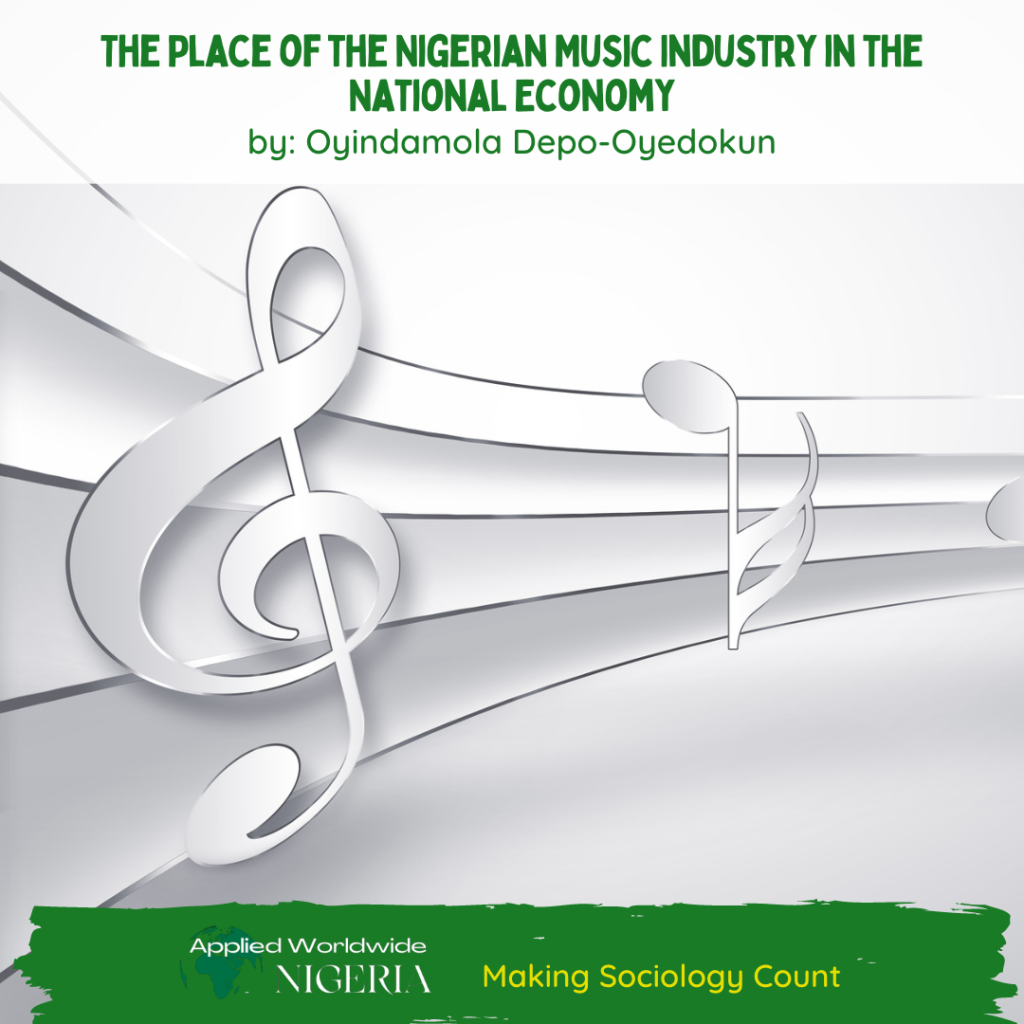The Nigerian music industry has seen unprecedented growth in recent years, largely as a result of the rising global appeal of the Afrobeats movement. I call it a movement because Afrobeats has been described as more than a genre, but rather an all-encompassing term for contemporary pop music from West Africa, particularly Nigeria and Ghana.

These pop music genres are mostly an evolution of the Afrobeat genre which was developed by the iconic Fela Kuti in the 60s. Fela himself blended various musical styles such as Fuji music, Highlife (originally Ghanaian), American funk, and Jazz to form Afrobeat. On the other hand, Afrobeats builds on the Afrobeat sound by fusing other genres to form Afropop, Afro-RnB, and several other genres unique to the region.
‘Afrobeat’ took on the ‘s’ in the early 2000s with the likes of artistes like 2Baba and the entire Mo’Hits ensemble. However, this fresh musical movement only really catapulted to global acclaim in the 2010s with smash hits like D’Banj’s ‘Oliver Twist’, Fuse ODG’s ‘Antenna’, Davido’s ‘Fall’, Wizkid’s ‘Come Closer’ which featured American superstar Drake, and Burna Boy’s ‘Ye’. The latter is often described as an accidental hit due to the unintentional recognition it was granted by Kanye West’s album of the same
name.
The trio of Davido, Wizkid, and Burna Boy are often referred to as “The Big Three” owing to their dominance on streaming platforms, both local and international charts, and pop culture as well as award recognition. Immense success has also been seen by their female counterparts, namely the likes of Tiwa Savage and Yemi Alade. Now, the younger generation of artistes, including Rema, Ckay, Tems, Fireboy, Ayra Starr, Asake, Oxlade, and so on, are also making waves on the global stage.
In the advent of digital streaming platforms (DSPs) like Apple Music, Spotify, Boomplay, etc., Afrobeats seems to have reached much farther and wider than its predecessor was ever able to. The streaming era has made it easier for our artistes to penetrate foreign charts and for their music to cross the borders of countries they had never even dreamt of. Our artistes dole out collaborations with global music stars almost every other week and the class of genres has even started influencing music acts outside Africa. Because of the global demand, our artistes are able to headline sold-out concerts outside of the continent with ease.
Also noteworthy are milestones like Beyoncé’s collaborative album “The Gift” which featured several African artistes, and the 2021 Netflix original docuseries “Afrobeats: The Backstory”. The latter shed light to the history of Afrobeats in Nigeria, Ghana, the UK, and beyond, featuring takes from several industry household names—both old school and new school. Outside the country, one of the foremost positive things Nigeria is associated with is its music. And if you’ve traveled out and mingled with foreigners, chances are you’ve been asked if you knew a particular Afrobeats song or artiste. Whether in Europe, the Middle East, Asia, or the Americas, you’re almost sure to hear some Afrobeats hit playing in the background in at least one public place.
A fond memory I still hold from my university days in Dubai is of when I saw a bunch of my non-African course-mates blasting Burna Boy’s “On the Low” in their car and singing along to it passionately. This was in 2019 and a first-hand reinforcement for me that our sound had truly gone global. After that, the regular occurrences of our music being played in the malls, theme parks, or fast food spots were almost expected.
What About the Numbers?
The saying “Afrobeats to the world” rings true now more than ever and our achievements on the global stage are too innumerable for a single article to capture. But how much does all of this acclaim translate to for our economy?
As of 2021, the Nigerian music industry reportedly raked in over $2 billion—over N1.2 trillion at the time—in revenue per year, making it one of the largest music industries in the world. To put this in the Nigerian context, that same year, crude oil exports generated $42.4 billion while the next biggest export, “Ships, boats” generated $1.4 billion, according to World’s Top Exports.
And to further put this in a global context, the US recorded music revenues that year were about $9.8 billion at wholesale value. Although this number is significantly higher, Nigeria’s standing beside the Giant is certainly impressive.
Also in 2021, data analytics company Stears dubbed Nigeria the second best-performing Entertainment and Media Consumer Market in the world. Statista estimates that revenue from streaming alone is expected to reach $45.34 million in 2023 in Nigeria. This is about 20% of the projected amount for the entire continent and places it ahead of South Africa and Egypt, the only two countries that superseded Nigeria’s streaming revenue as of November last year.
Moreso, the streaming era has made it easier for artistes and music executives to reap their profits as it has significantly curbed piracy. Relevant parties can now directly trace and access their revenue unlike before, when pirates would easily reproduce CDs and sell them at cheaper rates, thereby cutting off the supply-demand chain between the artiste’s label and the listener.
Whether through streaming revenues, album sales, concert ticket sales, or royalties, the Nigerian music industry contributes a huge amount to the local economy. And these numbers are definitely expected to soar in the coming years as the industry continues on an upward trajectory.
The Need for a Partnership between the Nigerian Government and the Nigerian Music Industry
Thankfully, the Nigerian government has caught on to the relevance of the industry. In 2020, the Minister of Finance Zainab Ahmed described the Nigerian creative industry—also including film, fashion, and information technology— as the fastest-growing sector of the economy. That year, the federal government, through the Bank of Industry (BoI), approved a N7 billion stimulus fund to support 35 firms in the creative industry.
However, it is a common belief that the government can do much better to boost the industry. Aside from the direct economic benefits, the music industry gives the country a facelift in the international scene. Nigeria has gained notoriety for online fraud, corruption, and other vices over the years, but the music industry has helped the country to be seen as more than that in recent years. Even the Minister of Information and Culture Alhaji Lai Mohammed acknowledged this positive contribution last year.
“The Wizkid of this world, the Burna Boy, Davido, and Tiwa Savage have really shown the world that Nigeria is a hub of the creative industry,” the minister stated in a phone-in program on Radio Nigeria. In light of this, the government should look for more ways to support the industry. This could look like direct investments in record labels and other major relevant businesses, facilitating music festivals with a global appeal so our artistes can do their thing for their foreign audiences right here on Nigerian soil, and so on. Of course, the latter idea would require a major restructuring to prepare the country for such large-scale tourism, but it is definitely an idea worth exploring.
Sources: Premium Times, The Will, Moda Culture




